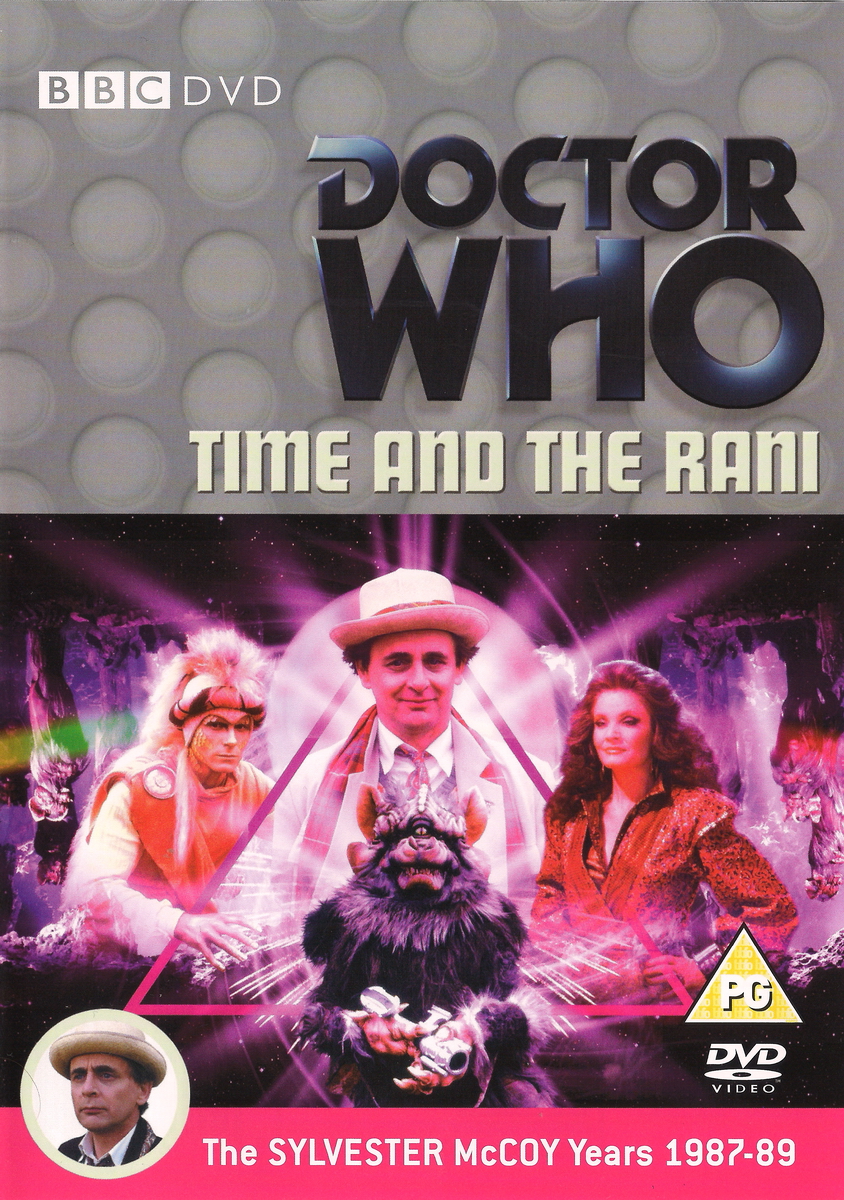
Aired 7 – 28 September 1987
Any Doctor’s first story always carries extra weight. While it may not necessarily be perfect or even indicate what the years to come will ultimately be like, it must afford the new lead the opportunity to step out of his predecessor’s shadow and prove that the show is in capable hands going forward. Following the backlash and outcry that arose during Colin Baker’s tenure as the Sixth Doctor, a fact due much more to production decisions and several weak scripts rather than the actor himself, ‘Time and the Rani’ also had the extra weight of needing to completely reinvent the franchise on the fly to show that the programme was capable of change to meet some semblance of public approval.
Unfortunately, even without the lofty goals of the serials comprising The Trial of a Time Lord, ‘Time and the Rani’ can hardly be deemed a successful first adventure for Sylvester McCoy as the Seventh Doctor following a hasty regeneration scene in which Colin Baker understandably refused to appear after unceremoniously being let go. However, just as the regeneration itself was quite rushed, so, too, was the entire scripting process by all accounts. While writers Pip and Jane Baker had becomes mainstays during the 1980s, they seem to realize that they perhaps do not have a firm grasp on who McCoy is as an actor or the Doctor. Even without the benefit of hindsight, it’s quite telling that the beginning of the serial moves at breakneck pace to reintroduce the Rani while also giving the Doctor amnesia to avoid crafting his persona, something he casually plays off as part of the post-regeneration process. However, though little true character work is done here and the comedy may be a bit overplayed, it does at least manage to showcase that the Seventh Doctor is going to be an altogether different type of person than the Sixth.
Following that decision, ‘Time and the Rani’ as a whole has to be considered an average Doctor Who story at best. With the Doctor purposefully ill-defined, it would make sense to rely on the companion who has been around longer to take charge and ease the transition process. Unfortunately, Mel is tasked with doing little other than running and screaming in what can only be considered the most banal and generic of companion duties. Her past is at least hinted at as her expertise with computers is brought up, but the script hardly treats her as the most dynamic personality. This paired with fairly generic dialogue and a presentation of the Rani reaching near-pantomime levels in many instances hardly makes for the most engaging of experiences, and ‘Time and the Rani’ as a whole could hardly have been the welcome to a new era for which fans were hoping. Fortunately, it is apparent from behind-the-scenes changes and hints within this story that bigger on-screen changes are yet to come, and ‘Time and the Rani’ does at least offer some political discussion and wonderful visuals and production values to boslter what ultimately is a rather generic story.


Leave a Reply